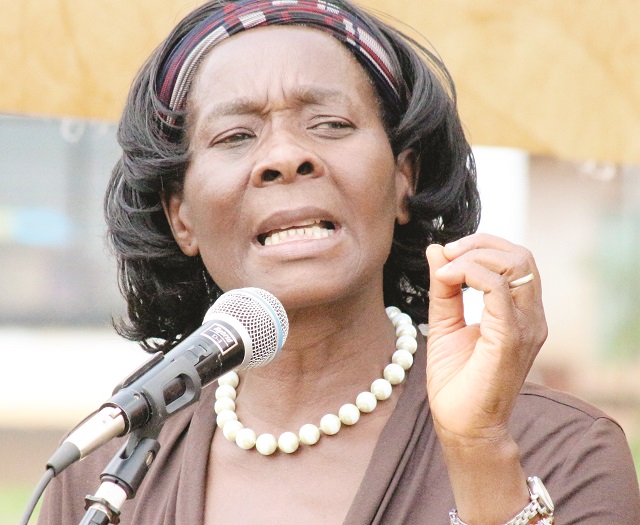
The Sunday News

Tinomuda Chakanyuka and Leonard Ncube, Sunday News Reporters
THE Government has instructed primary schools to start teaching Science and Mathematics in local languages at Early Childhood Development Level with effect from January next year as part of promoting Science, Technology, Engineering and Mathematics (STEM) in schools.
This is also part of implementing the new education curriculum which will be rolled out in all schools next year following the successful piloting project in more than 100 schools this year. In an interview on Friday, Permanent Secretary in the Ministry of Primary and Secondary Education Dr Sylvia Utete-Masango said the new learning areas would be taught through play where teachers will give children tasks that speak to Science and Mathematics concepts.
“New learning areas that have been incorporated are Mathematics and Science at ECD. Not to say that children will be taught one plus one at this level but such concepts will be inculcated in children through play. Whatever activity that children will take part in during class has to speak to Mathematics and Science, to allow children to grasp concepts at young ages.
“The teacher can ask pupils to make tea for three people. The fact that a pupil is able to put three cups in a tray shows that they would have grasped the concept of quantifying. In science pupils can bring seed which they plant and observe as they germinate over time,” she said.
Dr Utete-Masango said ECD classes will also be conducted in local languages unlike the obsession where most of these centres are teaching children in English.
“The medium of instruction at infant level is the mother tongue. This is so to allow children to quickly and easily grasp concepts. Our constitution recognises 16 languages including sign language. Those 16 languages are the medium of instruction at that level. Remember the new curriculum also emphasises on family religion and heritage. The use of the mother tongue is in line with that emphasis,” she said.
Other learning areas at ECD level will include Languages, Visual and Performing Arts, Physical Education, Family and Heritage Studies, Information and Communication Technology. Dr Utete-Masango said her ministry was now ready to implement the new curriculum. Piloting of the new curriculum involved early childhood learning, Grades One and Three, and Forms One, Three and Five pupils.
Some of the participating schools include Prince Edward High (Harare), Eveline High (Bulawayo), St Columbu’s (Mutasa), Chaplin High (Gweru), Avondale Primary (Harare) and Kriste Mambo High (Manicaland).
“We are now at implementation stage which covers all schools. We piloted the curriculum in a few schools in 2016 and in 2017 we will roll it out to all schools. We will start with ECD A, Grade One, Grade Three at primary level and Form One, Form Three and Form Five at secondary and high school level. We expect a smooth progression by 2018,” she said.
The curriculum has five pillars which include the legal and regulatory framework, teacher capacity development programme, teacher professional standards, infrastructure development and setting up of a centre for education research, innovation and development (CERID).
As part of implementing the new education curriculum the Ministry of Primary and Secondary introduced the National Schools pledge, which is recited by learners at all levels in efforts to instill a spirit of patriotism in citizens. The new curriculum also comes with, among other changes, a new grading system that has Grade Seven final results determined by 50 percent of continuous assessment and national examinations (50 percent).
At Form Four, 40 percent of learners’ grades will be based on theoretical examination, 30 percent practical examination and 30 percent continuous assessment.
Meanwhile, Primary and Secondary Minister Dr Lazarus Dokora has said the success of the new curriculum will depend on proper and effective supervision by school heads.
“It is your commitment to quality supervision that will ensure success of the new curriculum. You are the Ministry and before you say anything negative think about this, obviously you wouldn’t want to be part of a failed system. Government has given you stewardship of the new curriculum and you have to employ your skills,” said Dr Dokora while addressing the 26th National Association of Primary School Heads (Naph) conference in Victoria Falls last week.
Speaking at the same occasion, United College of Education principal Mr Albert Luthuli said schools should be treated as autonomous organisations and as part of a wider educational system for their improvement and effectiveness.
“What we are referring to as quality supervision in relation to the new curriculum can stand or fall on the quality and commitment of school head supervision. Some school heads were ignorant to participate in crafting of the new curriculum and haven’t read the document,” he said.



